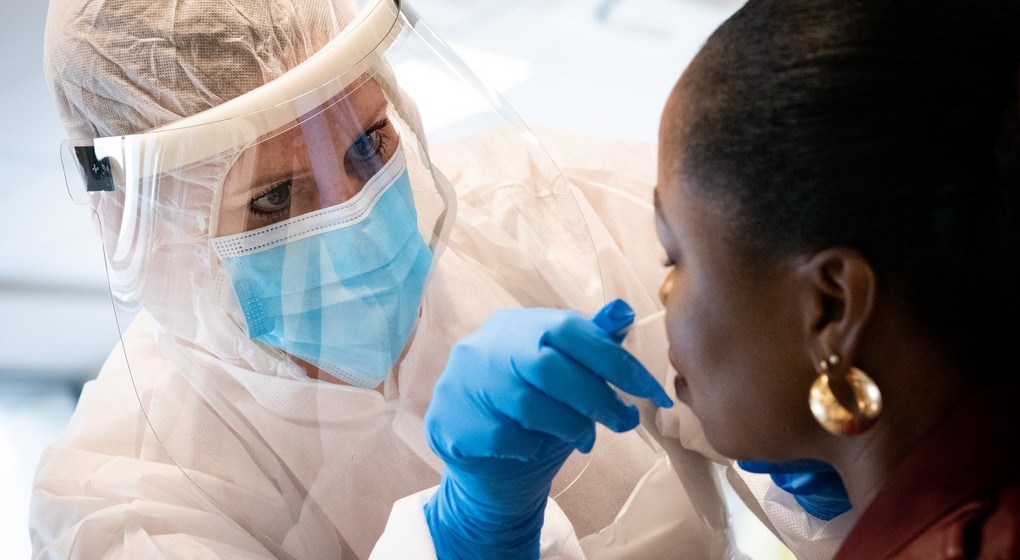The number of coronavirus infections with the newly reported Omicron variant is increasing exponentially in South Africa, the latest figures show.
The new variant was detected as early as 8 November 2021 and has resulted in several countries imposing entry bans for travellers from various southern African countries. It is probably now present in all provinces in the country, according to figures presented during the South African Parliament's Committee on Health on Thursday evening.
"In a fortnight's time, the country has seen an exponential increase in infections, largely due to the new variant which is now the dominant variant," doctor Michelle Groome of the National Institute of Infectious Diseases (NICD) said during the meeting.
South Africa detected 8,561 new coronavirus infections on Wednesday, about double the number of new cases reported on Tuesday – when 4,373 infections were recorded – and four times the number recorded on Monday.
Related News
- Non-vaccinated people urged to avoid regions where new variant is circulating
- Existing vaccines probably 'less effective against new variant,' says Moderna CEO
Although an increasing number of older people are becoming infected, young people between the ages of 10 and 29 are driving the increase, with the end of year school celebrations becoming contamination hotspots.
Around 74% of the 249 virus genomes sequenced in the country in the last month are linked to the new variant. According to the institute's data, the Omicron variant can overcome some immunity "but existing vaccines should still protect against severe disease and death," Groome said.
In Belgium, two new coronavirus cases were reported with this Omicron variant on Thursday. A total of four new infections have been linked to the strain across the country, as two non-linked cases were already detected in recent days.
Update#Omicron situation today in #Belgium: - 4 cases confirmed by sequencing (2 clusters of 2 patients: first cluster linked to Egypt/Turkey ; second cluster not linked to travel) - 6 probable cases (based on several genetic markers, but awaiting sequencing confirmation).
— Emmanuel André (@Emmanuel_microb) December 2, 2021
Need for nuance
Although these figures are worrying, virologists and health experts have stressed that very little is known about the new strain, both when it comes to the efficacy of vaccines against this strain as well as the risk of hospitalisation and death following infection with this variant.
“The appearance of new variants is quite normal, and right now a lot of research is still needed to better understand this one," virologist Steven Van Gucht told The Brussels Times, adding that it is important not to jump to conclusions or to spread fearmongering about the new variant.
“In essence, we know very little about this variant. We do not know yet whether it is more infectious, and if it is, we do not know how much more,” he said, adding that it is normal for more infections to be linked to this variant, as countries across the world are specifically searching for it.
"But that does not necessarily mean that it will cause the next big wave. It is possible but it is definitely not guaranteed.”
So far, it seems that people infected with the new mutation in South Africa are not seriously ill, according to the president of the South African Doctors’ Association, Angelique Coetzee, who told the BBC that the main complaints are sore muscles and fatigue.

